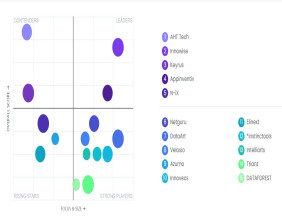Highlights:
- Manchester City's Victory: The tribunal ruled that Premier League rules on sponsorship deals between clubs and related companies were unlawful.
- Impact on Financial Regulations: The ruling may lead to widespread changes in how clubs secure sponsorship deals, affecting Premier League profitability and sustainability rules.
- Future of Financial Fair Play: This decision could prompt further challenges to financial fair play regulations, with clubs seeking damages and regulatory reforms.
Manchester City Football Club has secured a major legal victory following a tribunal ruling that Premier League rules governing sponsorship deals between clubs and related companies are unlawful. The decision stems from City’s challenge against the Premier League's Associated Party Transaction (APT) regulations, designed to prevent clubs from artificially inflating commercial deals with entities linked to their owners.
Background on the Ruling
The APT rules were introduced to ensure clubs could not exaggerate their financial strength by inflating sponsorship deals with companies related to club owners. Manchester City had been restricted from securing sponsorship deals with major entities such as Etihad Airways and First Abu Dhabi Bank (FAB). City argued that the Premier League’s method of evaluating the fair market value of such deals was flawed and discriminatory. The tribunal sided with City, finding that the Premier League failed to provide accurate market comparisons, thereby unfairly blocking the club's deals.
Implications for the Premier League
The tribunal’s decision has far-reaching consequences for the Premier League’s financial regulations. Many clubs rely on substantial investments from their owners, often in the form of interest-free loans. According to The Times, such loans make up £1.5 billion of the league’s total £4 billion borrowing, but these financial contributions were not properly factored into profitability and sustainability rules. This ruling could lead to wider challenges across the league as clubs may now seek greater freedom in securing sponsorship deals, potentially altering the financial landscape of English football.
The Future of Financial Fair Play
Manchester City's legal victory also raises broader questions about the future of financial fair play (FFP) regulations, which were originally designed to curb financial excesses in football. Other clubs affected by the APT rules may now pursue damages or challenge the regulations themselves, leading to potential reforms in how FFP is enforced in the Premier League. The tribunal’s ruling could inspire more clubs to challenge existing financial regulations, possibly leading to significant changes in the governance of football finances.




